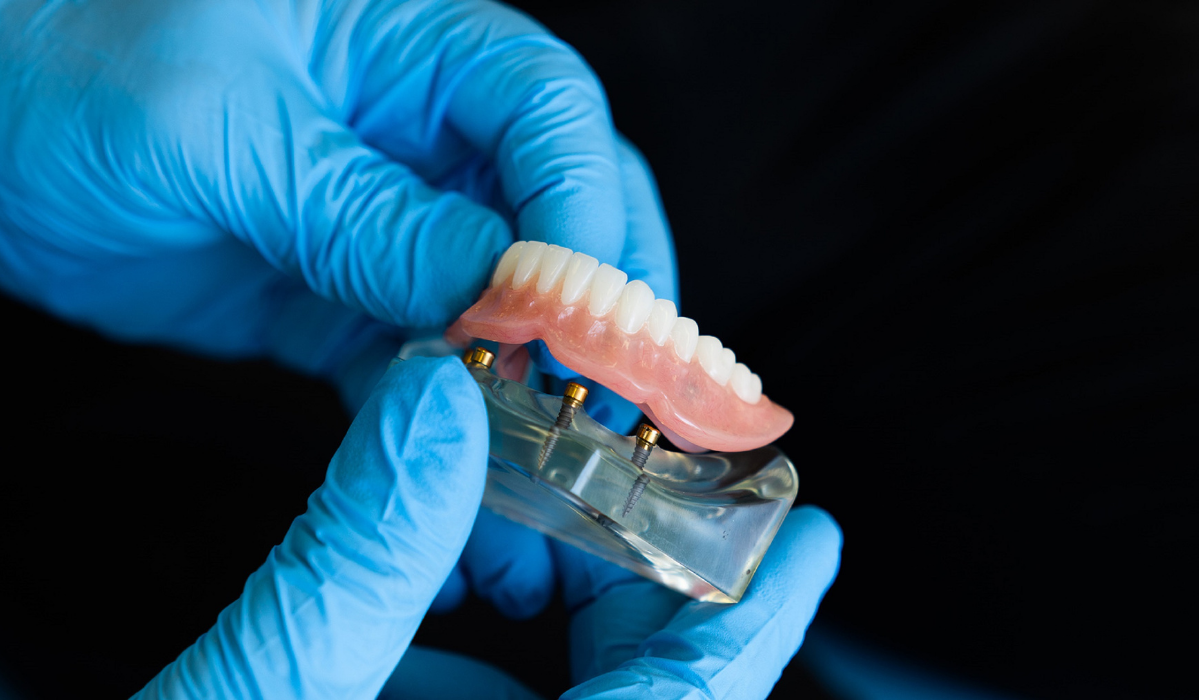Choosing between dental implants and dentures represents one of the most important decisions patients make about their oral health. At Lakeside Dental in Stoney Creek, we help patients navigate this choice daily. Both dental implants and dentures can restore smiles, but they offer vastly different experiences in terms of functionality, comfort, and long-term satisfaction.
Understanding the key differences between dental implants and dentures will help patients make informed decisions that align with their lifestyle, budget, and oral health goals. Each option has distinct advantages and considerations that deserve careful evaluation.
Functionality: How Dental Implants Compare to Dentures Performance
Chewing Efficiency and Food Options Implants provide superior chewing efficiency compared to dentures, restoring nearly 90% of natural bite force. This means patients can enjoy all their favourite Canadian foods, from corn on the cob at summer barbecues to crispy apples from local orchards.
Dentures typically restore only 20-25% of natural chewing force, which significantly limits food choices. Many denture wearers avoid tough meats, sticky foods, and hard fruits or vegetables. This restriction can impact nutrition and social dining experiences.
Speech Clarity and Confidence Dental implants don’t affect speech patterns because they function like natural teeth. Patients can speak confidently during work presentations, family gatherings, and social interactions without worrying about pronunciation changes.
Dentures can initially cause speech difficulties, particularly with “s” and “f” sounds. While most people adapt over time, some continue to experience minor speech changes. Poorly fitting dentures may cause clicking sounds or slurred speech.
Daily Maintenance Requirements Dental implants require the same care as natural teeth: regular brushing, flossing, and professional cleanings. This familiar routine makes oral hygiene straightforward and convenient.
Dentures demand a more complex maintenance routine. Patients must remove them nightly for cleaning, soak them in special solutions, and clean gums separately. This process takes more time and requires carrying cleaning supplies when traveling.
Comfort and Stability: Dental Implants vs. Dentures Experience
Slippage and Movement Concerns Dental implants are permanently anchored in jawbones, eliminating any risk of slippage or movement. Patients can laugh, sneeze, and eat without concern about embarrassing situations.
Even well-fitted dentures can shift during eating or speaking, especially lower dentures which have less natural retention. This movement can cause discomfort and social anxiety. Denture adhesives help but don’t completely eliminate movement.
Eating Restrictions and Lifestyle Impact With dental implants, patients can eat any food they enjoyed before tooth loss. There are no dietary restrictions once healing is complete, allowing patients to maintain their preferred nutrition and lifestyle.
Denture wearers often avoid certain foods permanently. Nuts, seeds, sticky candies, and tough meats can dislodge dentures or cause discomfort. Many patients report missing their favourite foods and feeling limited in social dining situations.
Physical Comfort and Gum Health Dental implants don’t put pressure on gums because they’re supported by jawbones. This eliminates the sore spots and irritation that many denture wearers experience.
Dentures rest on gums and can cause pressure points, especially as jaw shapes change over time. Regular adjustments are often needed to maintain comfort, and some irritation is common during the adaptation period.
Longevity Timeline: Dental Implants vs. Dentures Replacement Needs
Expected Lifespan Dental implants can last 25 years or more with proper care, and many last lifetimes. The initial investment pays off through decades of reliable function without major interventions.
Traditional dentures typically need replacement every 5-7 years as jaw shapes change and denture materials wear down. This ongoing replacement cost should be factored into patients’ long-term budget planning.
Maintenance and Repair Needs Dental implants rarely require repairs once osseointegration is complete. Routine dental visits focus on preventive care and monitoring, similar to natural teeth.
Dentures require regular adjustments, relines, and repairs. Even minor damage like a cracked tooth or loose clasp can make dentures unwearable until professional repair is completed.
Decision Factors: Choosing Between Dental Implants and Dentures
Bone Health Preservation Dental implants stimulate jawbones, preventing the bone loss that occurs after tooth extraction. This maintains facial structure and prevents the sunken appearance that can develop with missing teeth.
Dentures don’t provide bone stimulation, so gradual bone loss continues. This process can change facial appearance over time and affect denture fit.
Investment Considerations While dental implants have higher upfront costs, their longevity often makes them more economical over time. Patients should consider the total cost over 20-30 years, including replacements and maintenance.
Dentures have lower initial costs but require ongoing expenses for adjustments, repairs, replacements, and adhesives. These costs accumulate significantly over time.
At Lakeside Dental, we evaluate each patient’s unique situation to recommend the best tooth replacement option. Factors like bone health, overall health, lifestyle preferences, and budget all influence the ideal choice between dental implants and dentures.
Schedule a consultation to discuss which option aligns best with your needs and goals for optimal oral health and quality of life.


0 Comments